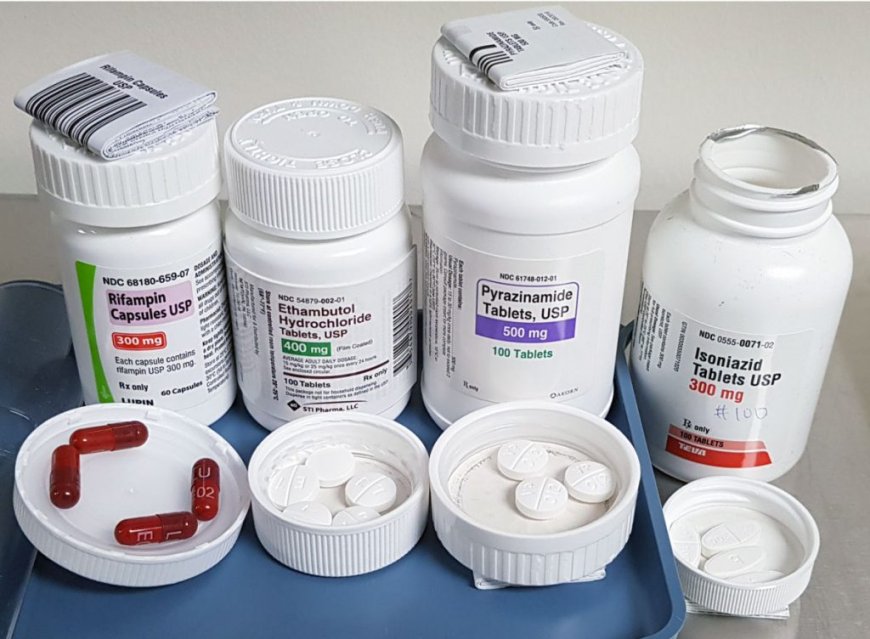World leaders commit to new targets to end TB

Kiambu,
Monday September 25, 2023
KNA by Wangari Ndirangu
Kenya is among countries in the world who have approved a political declaration in the next five years to advance global efforts towards ending the Tuberculosis (TB) pandemic.
The launch of the Coalition of Leaders to End TB is seen as a crucial step toward mobilizing global action and investments needed to accelerate TB control efforts and meet the targets outlined in the Global Plan to End TB by 2030.
World leaders at the United Nations General Assembly’s High-Level Meeting on Tuberculosis last week approved a Political Declaration with ambitious new targets for the next five years to advance the global efforts towards ending the TB epidemic.
The targets include reaching 90 percent of people with TB prevention and care services, using a WHO-recommended rapid test as the first method of diagnosing TB; providing social benefit packages to all people with TB; licensing at least one new TB vaccine; and closing funding gaps for TB implementation and research by 2027.
In a press release today, World Health Organization (WHO) Director General Dr Tedros Adhanom Ghebreyesus said that in today’s world, there is enough knowledge and tools that the ancestors never had and did not know, leading them to them suffer and die from tuberculosis.
“For millennia, our ancestors have suffered and died from tuberculosis, without knowing what it was, what caused it, or how to stop it. Today we have knowledge and tools they could only have dreamed of,” he said.
He noted that the political declaration countries approved during the meeting and the targets they have set, are a commitment to use those tools, and develop new ones, to write the final chapter in the story of TB.
Taking stock of progress towards targets set in 2018 for a five-year period, WHO reported that while global efforts to combat TB have saved over 75 million lives since the year 2000, they fell short of reaching the targets, mainly due to severe disruptions to TB services caused by the COVID-19 pandemic and ongoing conflicts.
In Kenya, the Health Cabinet Secretary, Ms. Susan Nakhumicha Wafula, who represented President Dr. William Ruto and joined world leaders at the launch of the Coalition of Leaders to End Tuberculosis expressed support for the coalition emphasizing the importance of equitable access to TB prevention and care, aligning with the Sustainable Development Goal of ending the TB epidemic by 2030 and achieving Universal Health Coverage.
TB remains a pressing global health challenge, with Kenya ranking among the 30 countries responsible for 80 percent of the world's TB burden.
In Sub-Saharan Africa, Kenya stands as one of the top five nations grappling with the profound impact of this infectious disease and during the meeting the Cabinet Secretary emphasized the disproportionate effect of TB on marginalized and vulnerable populations, often deprived of access to quality healthcare services, which further exacerbates existing inequalities.
The Government of Kenya, the CS said has however made substantial efforts to intensify Active Case Finding, a proactive approach to identifying individuals who may have fallen through the gaps of the healthcare system and this has paid off, positioning Kenya as one of the few high-burden countries to meet the 2020 WHO End TB strategy milestones, including significant reductions in TB incidence and fatalities.
The CS during the meeting highlighted the significance of integrating TB efforts into Primary Health Care (PHC) to ensure comprehensive access to prevention and care while strengthening healthcare systems noting that Kenya has established a primary health care approach focused on preventive and promotive health, with plans to enhance PHC capacities in the near future.
Wafula stressed the need for increased financing for TB programs, research and development, and domestic manufacturing of TB-related products.
According to Dr Tereza Kasaeva, Director of the WHO Global TB Programme, averting TB-related financial hardship and preventing the development of the disease in vulnerable groups will help diminish inequities within and between countries, contributing to the achievement of the Sustainable Development Goals.
“Uniting around the TB response by world leaders, for a second time, provides an opportunity to accelerate action and strengthen health systems capable of not only addressing the TB epidemic, but also protecting the broader health and well‑being of communities, strengthening pandemic preparedness and building on lessons learnt during the COVID-19 pandemic,” Kasaeva said
During the meeting, Ghebreyesus officially launched the TB vaccine accelerator council to facilitate the development, licensing and use of new TB vaccines.
The Council, supported by the WHO secretariat, will be led by a ministerial board, consisting of nine members who will serve on a rotating basis, for a term of two years.
The Council will also have subsidiary bodies to support its interaction and engagement with different sectors and stakeholders broadly, including the private sector, scientists, philanthropy, and civil society.
The Council aims to identify innovative sustainable financing, market solutions and partnerships across public, private, and philanthropic sectors. It will leverage platforms like the African Union, Association of Southeast Asian Nations (ASEAN), BRICS countries (Brazil, Russian Federation, India, China and South Africa), G20, G7 and others to strengthen commitment and actions for novel TB vaccine development and access.
Heads of State and Government gathered at UN Headquarters in New York on 18-19 September 2023 to review the implementation of the 2030 Agenda. The Summit also marked the half-way point to the deadline set for achieving the 2030 Agenda and the Sustainable Development Goals.
Courtesy; KNA
What's Your Reaction?



































































































































































































































































































